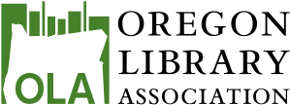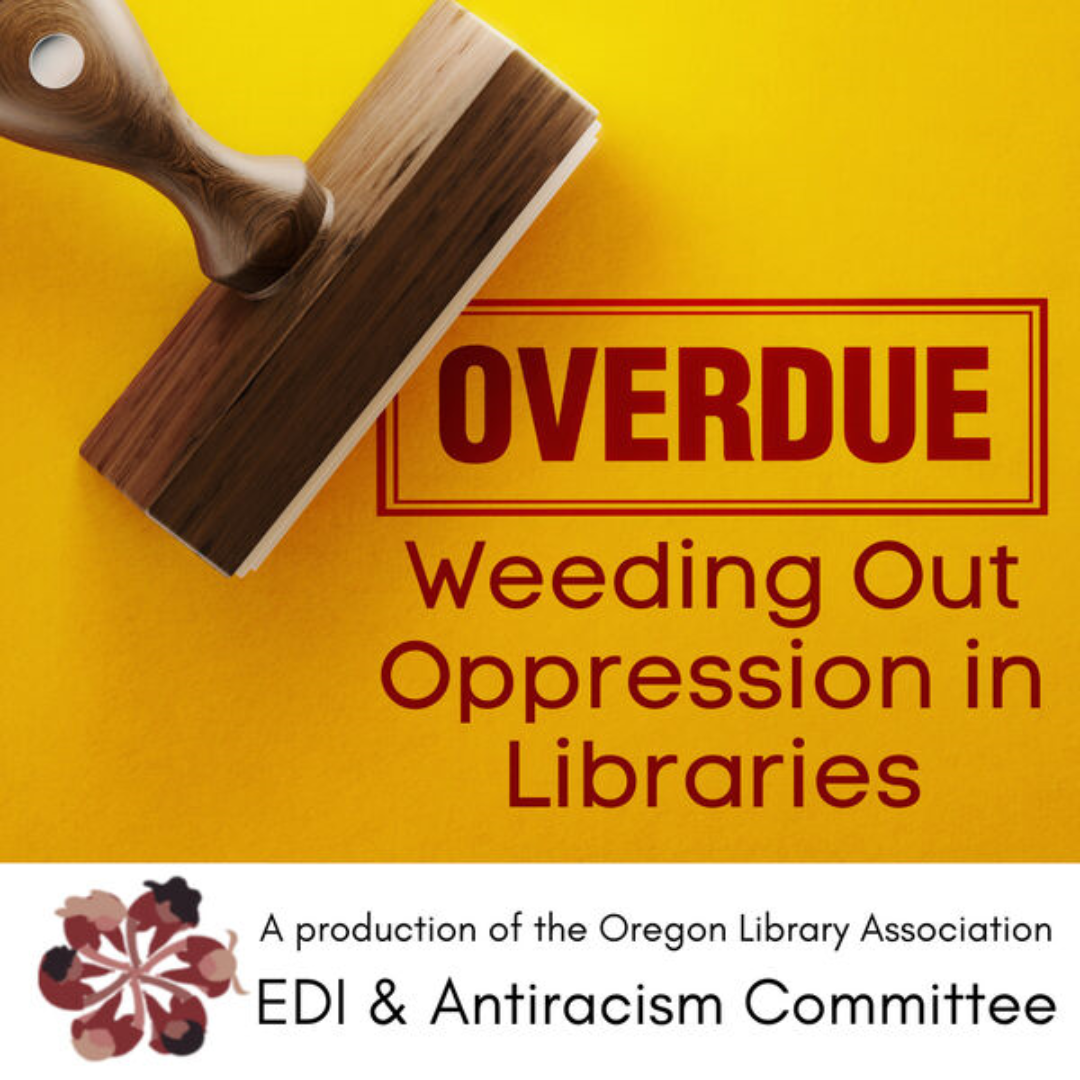|
Training Area:
Communication: specific to getting buy-in
-
How to get stakeholder EDI Antiracism buy-in
-
How to get municipality, county, HR EDI Antiracism buy-in
-
How to talk about EDI Antiracism
|
Recommended Training/Resource:
Courageous Conversations
Recommended by Staff Training Round Table: Diversity, Equity, and Inclusion: Strategies for Facilitating Conversations on Race by Caprice Hollins and Ilsa Govan
|
|
Equity Audits: How to audit
|
Evaluating, Auditing, and Diversifying Your Collections
Building Diverse Collections
Collection Analysis Tool (Picture Books)
|
|
Equity training
|
Equity in Action: Fostering an Antiracist Library Culture
Racial Equity Tools
Racial Equity Toolkit
Recommended resource: San Antonio Office of Equity: Equity Rapid Response Tool
|
|
De escalation
/Behavioral conduct
|
Equity in Action: Fostering an Antiracist Library Culture
Hateful Conduct in Libraries: Supporting Library Workers and Patrons
“Because I See What You Do”: How Microaggressions Undermine the Hope for Authenticity at Work
|
|
Policy creation
|
Equity in Action: Fostering an Antiracist Library Culture
|
|
Diversity Recruitment
-
How to recruit more BIPOC staff, specifically strategy and implementation
-
How to manage staff using an Antiracist and EDI focus
|
Advancing Racial Equity and Inclusion in the Workplace Symposium
Recruiting for Diversity – American Library Association
|
|
Specific library worker training
-
How to serve homeless patrons
-
How to implement EDI Antiracism best practices into library customer service
-
Implicit bias training for library workers
|
A Librarian’s Guide to Homelessness
Diversity Standards: Cultural Competency for Academic Libraries (2012)
Cultural Competence for Librarians
Oregon Commission for the Blind - Diversity / Disability Awareness Training
|
|
Need for professional knowledge access
|
Some article examples: Starting with I: Combating Anti-Blackness in Libraries
The language of cataloguing: Deconstructing and decolonizing systems of organization in libraries
Librarians Working with Diverse Populations - IDEALS @ Illinois
Indigenous Allyship: An overview
|
|
Intellectual Freedom/Freedom of Speech: How to handle the freedom of speech issues while trying to be an EDI antiracist library
|
Hate Speech and Hate Crime – American Library Association
|
|
Cataloguer training
|
The language of cataloguing: Deconstructing and decolonizing systems of organization in libraries
|
|
To actively engage with EDI Antiracism topics and practices
|
Anti-Racism Daily
Truth B Told Podcast
Simmons University – Anti-oppression LibGuide |
|
Affinity Groups and Libraries
- Affinity groups are a powerful way to center librarians and support staff of color in your library system and provide a space for community care, networking, mentorship, recruitment, and retention. Learn how affinity groups bring together librarians, professors, educators, engineers, activists, and government workers to engage in healing-centered gatherings and community care
|
Affinity Groups and Libraries-
A talk by Janet Damon
|
|
Continuing Education Services
 Upgrade your skills and knowledge through Amigos Library Services Continuing Education Services. From reference and technical services to project management, cataloging, technology, and more, our courses, available face-to-face and online, help you discover and strengthen the tools you need to serve your community. And even better, we can tailor them to fit you and your group's unique needs. Upgrade your skills and knowledge through Amigos Library Services Continuing Education Services. From reference and technical services to project management, cataloging, technology, and more, our courses, available face-to-face and online, help you discover and strengthen the tools you need to serve your community. And even better, we can tailor them to fit you and your group's unique needs.
|
|
|
Tools for Diversifying Your Author Base
(Source: IBPA's DEI Resource Center)
|
- The BIPOC Bookshelf. Platform for books written by BIPOC authors, database of BIPOC literary agents and editors.
- The Brown Bookshelf. Designed to push awareness of the myriad Black voices writing for young readers.
- Children's Book Council Diversity Resources. Resources for connecting with diverse authors, illustrators, readers, reviewers, and other members of the children’s book community.
- The FOLD. Canada’s first festival for diverse authors and storytellers, held in historic downtown Brampton.
- It Gets Better. LGBTQIA video stories.
- Kweli. Nurtures emerging writers of color, creates a community and programming based on artistic excellence and rigor.
- Latinxs in Kid Lit. Explores the world of Latinx YA, MG, and children's literature.
- Lambda Literary. Resources for LGBTQ writers.
- Publishing in Color. Conferences connecting book and magazine publishing professionals with Christian writers of color.
- The Word: A Storytelling Sanctuary. Spotlights authors from underrepresented communities and connects diverse communities with the publishing industry.
- Writers of Color. Public Twitter list of writers of color.
|
|
Research & Thought Leadership on Diversity in Book Publishing
(Source: IBPA's DEI Resource Center)
|
-
- Lee & Low Book's Diversity Baseline Study. Lee & Low Book's survey of publishing workforce diversity in major traditional publishers, review journals, trade and university presses, and literary agencies.
- Cooperative Children’s Book Center (CCBC)'s Diversity Statistics. CCBC has been documenting books for children and teens it receives annually by and about Black, Indigenous, and People of Color (BIPOC) since 1994.
- Cooperative Children’s Book Center (CCBC)'s Observations on Publishing, 2020. CCBC observations on recent book diversity, literature, and publishing trends.
- Minorities in Publishing. The brain child of publishing professional Jenn Baker, MiP is a podcast discussing diversity (or lack thereof) in the book publishing industry.
- Neurodiversity. Refers to the diversity of human brains, and considers differences of how our brains are "wired" as simply another natural variation in humans.
- Rethinking 'Diversity' in Publishing. The first in-depth academic study in the UK on diversity in trade fiction and the publishing industry.
- The VIDA Count. A break down of forty literary journals and well-respected periodicals, tallying genre, book reviewers, books reviewed, and journalistic bylines to offer an accurate assessment of gender representation in the publishing world.
|
|

|
-
Project Implicit is a 501(c)(3) non-profit organization and international collaborative of researchers who are interested in implicit social cognition.
The mission of Project Implicit is to educate the public about bias and to provide a “virtual laboratory” for collecting data on the internet. Project Implicit scientists produce high-impact research that forms the basis of our scientific knowledge about bias and disparities.
- Test your unconscious/implicit bias HERE
|


